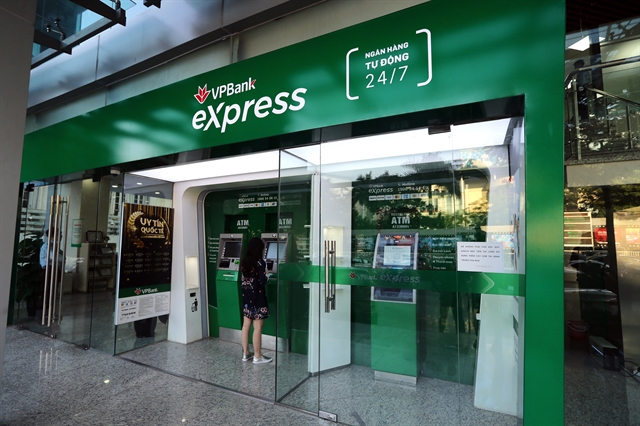Global credit rating firm Moody’s Investors Services has announced it would keep VPBank's credit rating at B1. This decision was made nearly four months after Moody's announced the review on risks, financial strength and development prospects of the bank amid the COVID-19 pandemic, negatively affecting almost all sectors of the economy.

Global credit rating firm Moody’s Investors Services has announced it would keep VPBank's credit rating at B1. This decision was made nearly four months after Moody's announced the review on risks, financial strength and development prospects of the bank amid the COVID-19 pandemic, negatively affecting almost all sectors of the economy.
Accordingly, Moody’s confirmed VPBank’s outlook at ‘stable’ including counterparty risk assessment at Ba3 and long-term local currency deposit at B1.
Due to the impact of the COVID-19 pandemic, which led to the global economic recession, in the first half of 2020, Viet Nam's economy recorded a GDP growth of 1.81 per cent - the lowest increase over the past decade. In this context, Moody's maintained its credit rating with VPBank, showing that the bank has good financial capacity, with risks less than initial concerns when the disease broke out.
In confirming VP Bank's B1 Baseline Credit Assessment (BCA), Moody's acknowledges the bank's above-industry average profitability and strong capitalisation. In addition, Moody's stated that the risks that may occur to the consumer finance segment due to impacts of COVID-19 were well controlled by VPBank by optimising the balance sheet, ensuring safety ratios and good liquidity assets. It can be said that the decision to maintain the credit rating with VPBank reflected the efforts of maintaining a solid foundation to ensure the bank’s sustainable and efficient growth.
By the end of the second quarter of the year, VPBank's consolidated operating income reached VND18.8 trillion (US$810.6 million), an increase of 12 per cent over the same period last year. The bank's consolidated before-tax profit was recorded at nearly VND6.6 trillion, equivalent to 64 per cent of the whole year’s plan. In parallel with maintaining revenue and profit growth, risk control activities have been implemented well by the bank.
VPBank's consolidated bad debt ratio by the end of June stood at 2.71 per cent. The parent bank's bad debt ratio dropped to 2.07 per cent. VPBank has also been one of the banks with the highest capital adequacy ratio (CAR) in the market. By the end of June 2020, VPBank's CAR was above 11 per cent based on Basel II standards, much higher than the 8 per cent required by the State Bank of Viet Nam.
The bank’s caution in preventing risks was also reflected in the increase of provision fund expenses. In the first half of this year, VPBank's provision expenses - excluding the provision for Viet Nam Asset Management Company (VAMC) - in 2019 increased by 8.6 per cent and 30.4 per cent at individual banks. High provision expenses showed that VPBank has always been cautious and has sufficient financial resources to prevent risks that may arise when the economy is in an unpredictable stage.
At the same time, VPBank still consolidates its position as one of the banks with the highest return on equity (ROE) and return on assets (ROA). These ratios as at the end of June were 23.5 per cent and 2.7 per cent respectively.
With the success of cautious steps in the right direction with the recognition of international organisations including Moody’s, VPBank continues to consolidate a solid foundation for future development goals. — VNS





